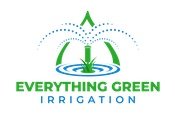The Benefits of Smart Irrigation Controllers: Saving Water and Money
As we become more aware of the impact of our actions on the environment, many homeowners are looking for ways to conserve resources and reduce waste. One area where this is particularly relevant is in irrigation systems. Traditional irrigation controllers rely on a set schedule that may not take into account factors like rain or soil moisture levels. However, with the rise of smart technology, homeowners now have access to advanced irrigation controllers that offer more precise control over watering. In this blog post, we'll explore the benefits of smart irrigation controllers and how they can help you save water and money while promoting healthy plant growth.
What are Smart Irrigation Controllers?
Smart irrigation controllers use advanced technology to deliver precise amounts of water to your landscape, based on real-time data such as weather conditions and soil moisture levels. These controllers use sensors and weather data to adjust irrigation schedules and prevent overwatering, which can lead to water waste and unhealthy plants. Some systems can even be programmed to adjust the watering based on the specific needs of different plants and zones in your landscape.
Benefits of Smart Irrigation Controllers
Reduced Water Usage and Costs
One of the main benefits of smart irrigation controllers is that they can significantly reduce water usage and costs. By adjusting watering schedules based on weather and soil moisture levels, these systems can prevent overwatering and reduce water waste. This not only saves water, but it can also lead to lower water bills for homeowners.
Healthier Plants
Overwatering can cause a range of problems for plants, from root rot to leaf mold. By providing just the right amount of water, smart irrigation controllers can promote healthy plant growth and reduce the risk of disease and pests. Additionally, by ensuring that plants receive the right amount of water at the right time, smart controllers can help plants establish deeper root systems, which makes them more resilient to drought and other stressors.
Convenience and Accessibility
Smart irrigation controllers offer homeowners greater convenience and accessibility when it comes to managing their irrigation systems. Many systems can be controlled remotely using a smartphone app or web interface, allowing homeowners to adjust watering schedules and settings from anywhere. This can be particularly useful when traveling or during periods of inclement weather.
Environmental Benefits
By reducing water waste and promoting healthy plant growth, smart irrigation controllers can have a positive impact on the environment. Conserving water helps to protect natural resources and ecosystems, while healthy plants provide benefits such as air purification and carbon sequestration.
Conclusion
Smart irrigation controllers offer a range of benefits for homeowners, from reducing water usage and costs to promoting healthy plant growth and convenience. By utilizing real-time data and advanced technology, these systems provide precise control over watering and can help homeowners conserve resources and reduce waste. If you're looking to upgrade your irrigation system, consider the benefits of smart controllers and how they can help you achieve a healthier, more sustainable landscape.
